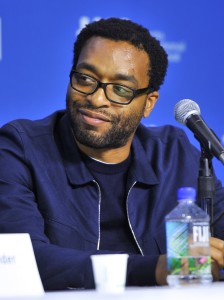
Since I started attending the Toronto International Film Festival (TIFF) in 2003, I have watched this audience festival grow into what Roger Ebert dubbed the most important film festival in the world, marking the start of the movie year. It was controversial to suggest that anything trumped Cannes when Ebert first made that claim, but in the last few years TIFF has been growing exponentially in both celebrities and importance. This year, it positively exploded.
TIFF is first and foremost an audience film festival, and its highest honor is the People’s Choice Award. This award has historically turned small movies into international box office successes: “American Beauty,” “Slumdog Millionaire” and “The King’s Speech” were all crowned with this award before going on to become Best Picture Oscar winners. This year’s People’s Choice Award went to Steve McQueen’s “12 Years A Slave” starring Chitwel Ejiofor.

At public screenings, the festival pulls out all the stops: Almost every film at the festival this year had directors and sometimes actors present to introduce the film and, in many cases, to give a Q&A session after the screening. Unlike at press screenings, audience members at public screenings rarely walk out mid-screening, unless the film is excruciatingly bad, and even then, Toronto audiences are usually too polite to leave, sticking it out in hopes that the film will improve — or at least to get their $23 worth for the screening.
When I attended the world premiere of “The Disappearance of Eleanor Rigby: Him and Her,” the screening was held up by the hordes of fans and press slowing down James McAvoy and Jessica Chastain as they walked the red carpet and took their seats. When Chastain arrived, hundreds of smartphones flashed, attempting to document the star’s presence. And this year, more than any previous year, TIFF hosted multitudes of stars at multiple films each night. Benedict Cumberbatch (“Fifth Estate,” “12 Years A Slave,” “August: Osage County”) and Daniel Radcliffe (“Horns,” “The F Word,” “Kill Your Darlings”) each walked the red carpets thrice to promote their respective films, and this year marked the festival debut for starlets like Julia Roberts and Taylor Swift.
Filmmakers have long noted how much they love Toronto audiences: As residents of a highly multicultural and liberal city, Torontonians love to take in international films and are hard to shock. Tom Tykwer said so in 2010 at the screening of his film “Drei,” which chronicled the love affair of a husband and wife with another man and left the Venice Film Festival audience in shock. I heard this sentiment echoed many times this year, and this year’s festival was the first to fully match Toronto’s enthusiasm with the sheer amount of talent present.
In the last 10 years, the festival has made numerous changes to improve the audience experience: Ticket sales have moved online, each film usually gets three screenings instead of two and the festival was extended from 10 to 11 days several years back, to allow the audience enough time to see films that sold out early in the run. Every year the lineups get longer and start earlier, and the tickets sell faster. This year had a record seven-hour rush line for sold-out films on the first Sunday of the festival.

But perhaps the most important change in the festival has been how much it has altered and shaped the Canadian film industry in the last few years. Until recently, Canadian features by first-time directors were part of the “Canada Firsts” program, intended to highlight Canadian films but often functioning as a means to help you avoid the fumbles of first-time directors and ignore Canadian cinema. Now, Canadian features are integrated into the festival’s international programs, such as “Vanguards” for first-time filmmakers and “Contemporary World Cinema,” which has actually helped them find an audience. This year’s festival was the first to have many international movie stars in films by Canadian directors, like the Toronto-centric films “The F Word” (Daniel Radcliffe and Zoe Kazan), directed by Michael Dowse, and “Enemies” (Jake Gyllenhaal), directed by Denis Villeneuve.
Although the major movie stars and Hollywood films are at the center of the festival’s buzz and have certainly helped shape the event’s importance on the international scene as a place where films get distributors, the real heart of the festival lies in the international cinema. This year’s festival featured films from the Greek New Weird Wave in its “City to City” program, including “The Eternal Return of Antonis Paraskevas”. One highlight of the festival was engaging with the writer-director of this highly bizarre film about its metaphorical relationship with the financial crisis in Greece.
Often, disturbing films, such as the Brazilian “A Wolf at the Door” that revolves around a man’s mistress who kidnaps and murders his daughter, were illuminated by a Q&A, explaining how the film was based on real events. Many of the best films of the festival came from international directors well known in the film world though not mainstream: Lukas Moodysson’s chronicle of punk rocker girls in 1980s Sweden “We Are the Best!,” François Ozon’s “Young & Beautiful,” Agnieszka Holland’s political mini-series “Burning Bush” and Caroline Link’s coming-of-age tale “Exit Marrakech.”
